Websites ‘N’ More is a SEO Company based in Sydney, Australia. I am responsible for the Search Engine Optimization campaigns of clients and am always on the lookout for great SEO Tools that can give our clients a better insight into their website and produce real and effective results. While I highly recommend using premium SEO Tools since they provide more features and better support, there are some effective tools that are free and do the job just as effectively. Here is my list of FREE SEO TOOLS. I will try and update this list as I come across some other great tools. I will also try and post out a list of SEO Tools for Off- Page Optimization.
1. Keyword Research and Selection – Any good SEO campaign starts with researching and selecting the right keywords. The two tools I use the most while working on Search Engine Optimization campaigns include- WordStream Free Keyword Tool and Google Adwords Keyword Planner Tool. Both tools are great in their own sense and offer crucial information that helps in researching and selecting the right keywords for a campaign.
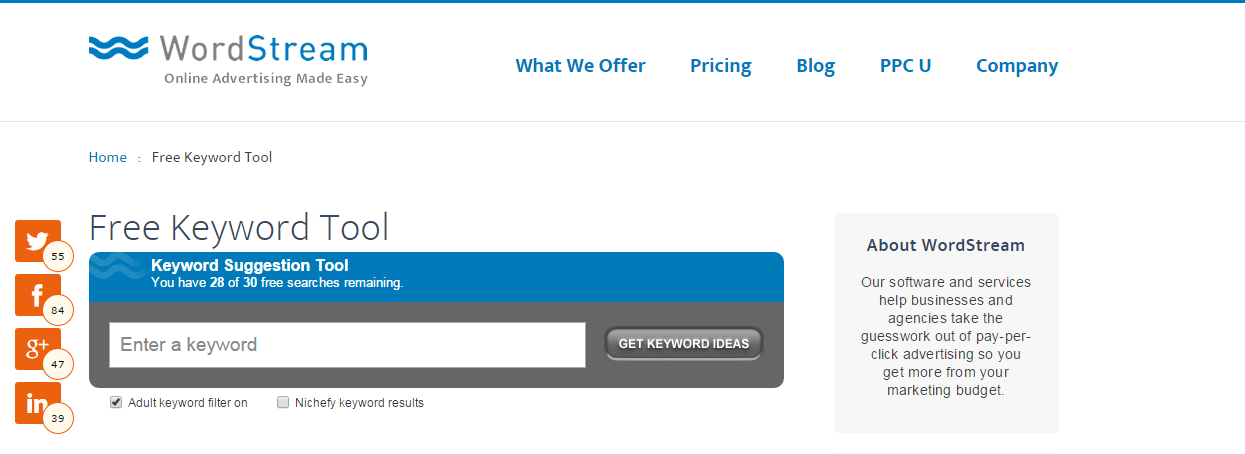
2. SEO Reporting Tools – There have been a lot of instances where I get an SEO enquiry and need to present a report to the client with areas of improvement in order to achieve the desired results for them. The two tools I always use to conduct a general analysis of a website include- SEOSiteCheckup and Woorank. Both the tools provide you a score for a website based on various SEO factors. At the most basic (FREE) level SEOSiteCheckup, provides a more detailed analysis as compared to Woorank.
 3. Plagiarism or Content Duplicity – Once the website is up and running with all the content loaded, it is always a good idea to check it for any content duplication. For plagiarism we tend to use Copyscape and to check for any internal content duplication we use Siteliner.
3. Plagiarism or Content Duplicity – Once the website is up and running with all the content loaded, it is always a good idea to check it for any content duplication. For plagiarism we tend to use Copyscape and to check for any internal content duplication we use Siteliner.
 4. Meta Data Extraction – Rather than going through each page of the website to check for the Meta Titles, Descriptions and Keywords separately, we use a handy little tool called Buzzfeed Meta Tag Extractor. This is a great little tool where you can get a snapshot of all the Meta Data for various links and then download that information on an Excel sheet. Another tool we use for Meta Data analysis is Exadium Mata Data Analyser. The former is better compared to the latter in that it allows you to download the results. I am yet to come across a tool that presents an analysis for all the links of the website by simply entering the website URL.
4. Meta Data Extraction – Rather than going through each page of the website to check for the Meta Titles, Descriptions and Keywords separately, we use a handy little tool called Buzzfeed Meta Tag Extractor. This is a great little tool where you can get a snapshot of all the Meta Data for various links and then download that information on an Excel sheet. Another tool we use for Meta Data analysis is Exadium Mata Data Analyser. The former is better compared to the latter in that it allows you to download the results. I am yet to come across a tool that presents an analysis for all the links of the website by simply entering the website URL.
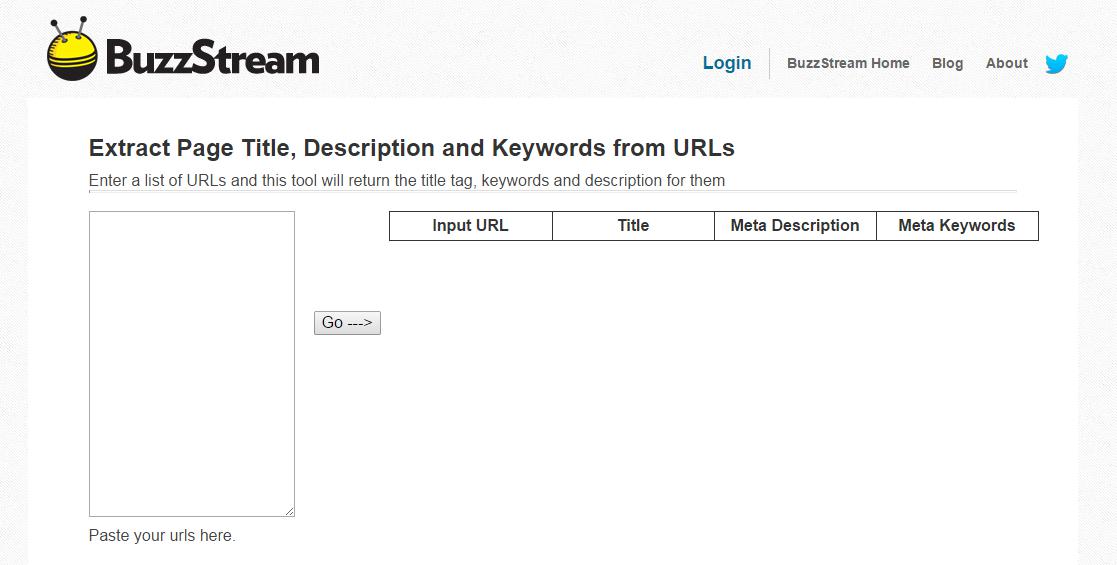 5. SEO Performance Analysis – Once the campaign is up and running it is important to check the performance and take necessary actions when necessary. The best tools to conduct a performance Analysis include Google Analytics and Google Webmaster. These two tools can also be interlinked for ease of use.
5. SEO Performance Analysis – Once the campaign is up and running it is important to check the performance and take necessary actions when necessary. The best tools to conduct a performance Analysis include Google Analytics and Google Webmaster. These two tools can also be interlinked for ease of use.
 6. Page Speed Analysis – It is becoming increasingly important to increase your web page loading times especially with the rise in mobile traffic. You don’t want a website that takes really long to load on a mobile phone ultimately leading to a bad User Experience. Infact Google has indicated that the Page Speed Is one of the signals used in its ranking algorithm. Google Page Speed is great tool to analyse your page speed and find out the areas of improvement. Another tool that can be used to check for page speed is Pingdom Website Speed Test. In my opinion Google Page Speed is a superior tool as it provides a better insight into the areas of improvement.
6. Page Speed Analysis – It is becoming increasingly important to increase your web page loading times especially with the rise in mobile traffic. You don’t want a website that takes really long to load on a mobile phone ultimately leading to a bad User Experience. Infact Google has indicated that the Page Speed Is one of the signals used in its ranking algorithm. Google Page Speed is great tool to analyse your page speed and find out the areas of improvement. Another tool that can be used to check for page speed is Pingdom Website Speed Test. In my opinion Google Page Speed is a superior tool as it provides a better insight into the areas of improvement.
 7. W3C Validation Service – A WWW Consortium Service that allows checking for any issues with the mark-up of HTML and XHTML documents. The Markup Validation Service provides a detailed report allowing you to quickly fix any issues that may be. A similar tool to check for any CSS issues is the CSS Validation Service.
7. W3C Validation Service – A WWW Consortium Service that allows checking for any issues with the mark-up of HTML and XHTML documents. The Markup Validation Service provides a detailed report allowing you to quickly fix any issues that may be. A similar tool to check for any CSS issues is the CSS Validation Service.
 8. SEO Management Plugin/Extension – If your site is built using an open source platform such as WordPress or Magento, you can use the Yoast plugin for SEO for WordPress or Creare SEO Extension for Magento. The Yoast SEO plugin has an extensive list of features that allows for on-site SEO management. You can add the Focus Keywords for a particular page and the plugin will provide you an analysis of the page with suggestions for better optimization. For Magento, unfortunately I have not come across an all in one plugin however the Creare SEO Extension is a good starting point for on-page optimization for Magento based websites. This extension has plenty of features for e-commerce stores such as unique category headings, Default Meta Titles and Descriptions for products and categories. For a full list of features of this extension click here.
8. SEO Management Plugin/Extension – If your site is built using an open source platform such as WordPress or Magento, you can use the Yoast plugin for SEO for WordPress or Creare SEO Extension for Magento. The Yoast SEO plugin has an extensive list of features that allows for on-site SEO management. You can add the Focus Keywords for a particular page and the plugin will provide you an analysis of the page with suggestions for better optimization. For Magento, unfortunately I have not come across an all in one plugin however the Creare SEO Extension is a good starting point for on-page optimization for Magento based websites. This extension has plenty of features for e-commerce stores such as unique category headings, Default Meta Titles and Descriptions for products and categories. For a full list of features of this extension click here.
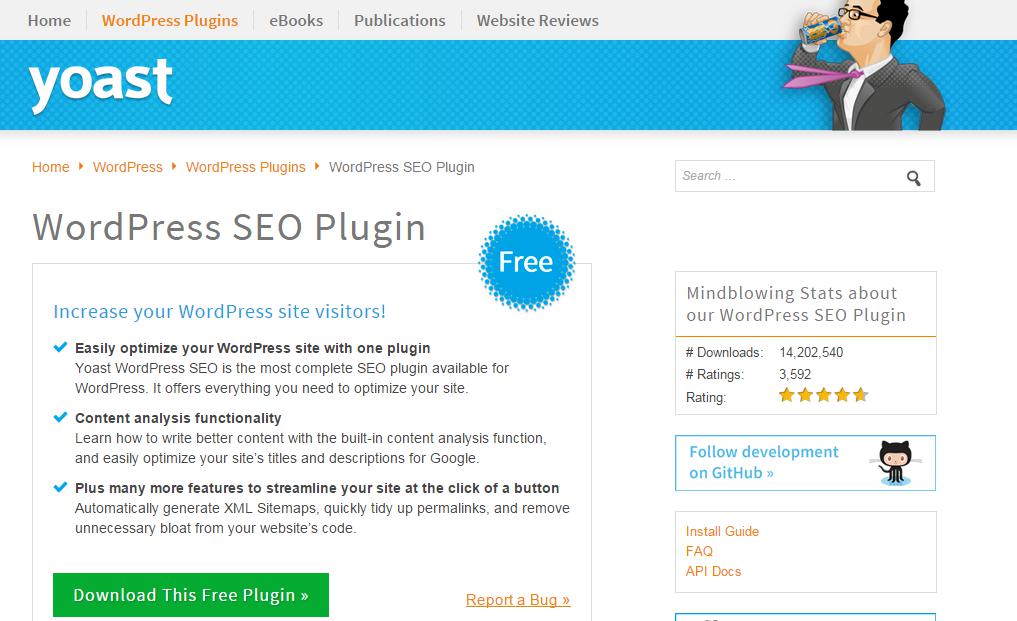 9. SERP Rank Checker – There are plenty of tools to check the ranking of particular keywords on search engines. The ones I use the most are SERP’s Keyword Rank Checker and the Small SEO Tools Keyword Position Tool.
9. SERP Rank Checker – There are plenty of tools to check the ranking of particular keywords on search engines. The ones I use the most are SERP’s Keyword Rank Checker and the Small SEO Tools Keyword Position Tool.
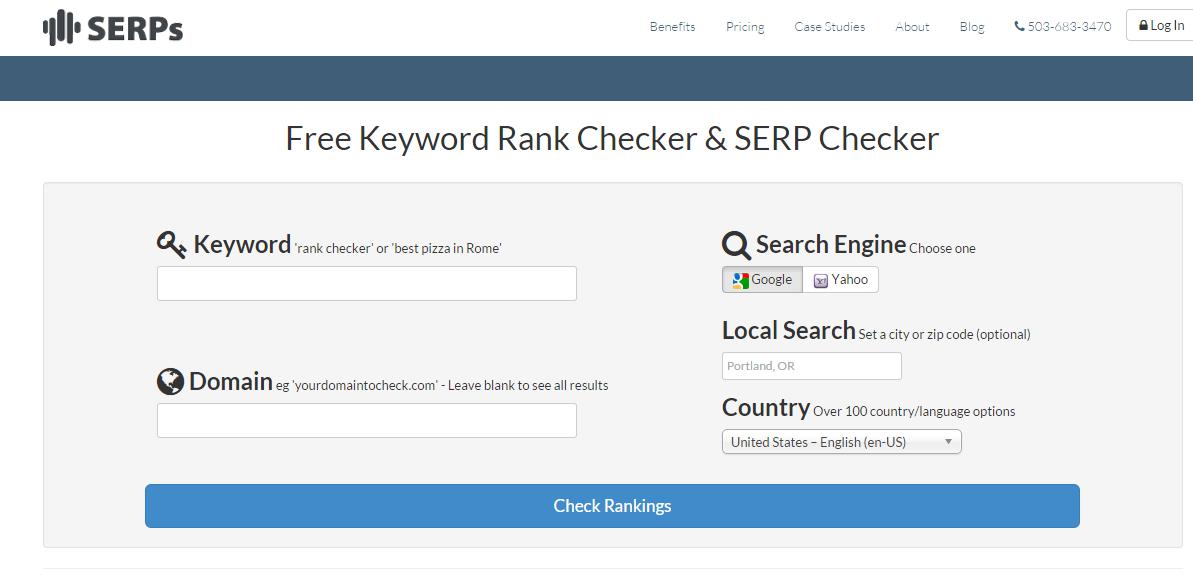 10. Anchor Text Over-Optimization Check- Post 2012 (Penguin Update) Google has started checking for Anchor Text Over-Optimization and penalizing them. To get a better understanding of what anchor text is click here. The tool I use for checking over optimization of Anchor text- Remove’em.
10. Anchor Text Over-Optimization Check- Post 2012 (Penguin Update) Google has started checking for Anchor Text Over-Optimization and penalizing them. To get a better understanding of what anchor text is click here. The tool I use for checking over optimization of Anchor text- Remove’em.
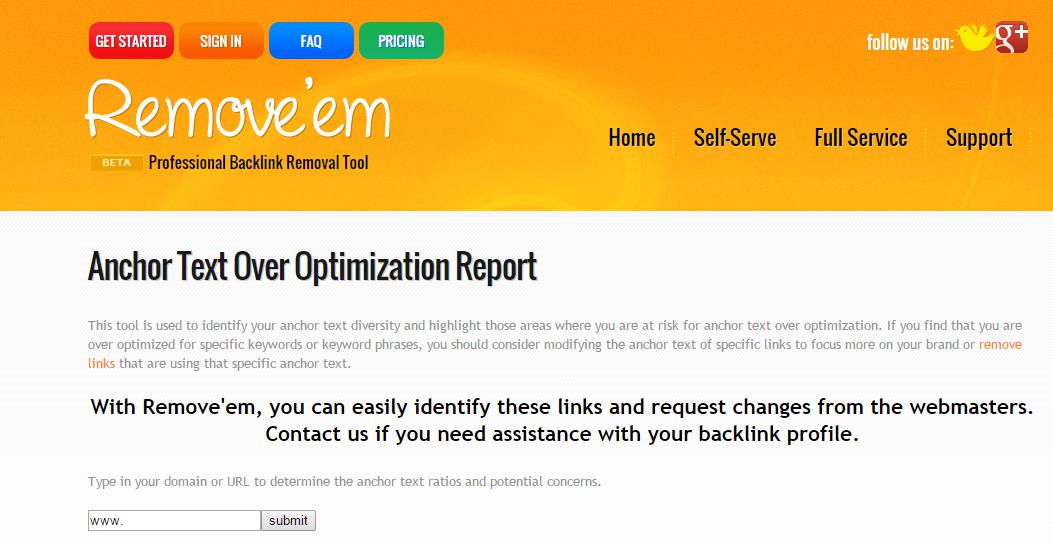
11. Search Engine Optimization Complete Analysis- For a quick overall analysis of a website I tend to use the Free SEO Tool Kit by Microsoft. The tool provides a detailed analysis of a website and provides suggestions for improving the Search Engine friendliness.
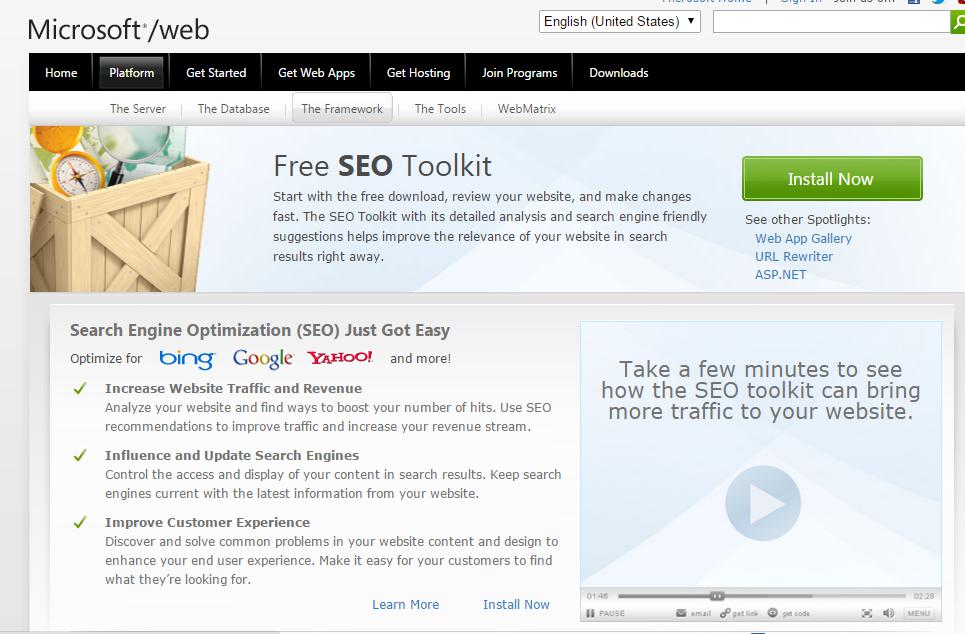
If you have any other great tools in mind do leave a reply in the comments section of the blog.

